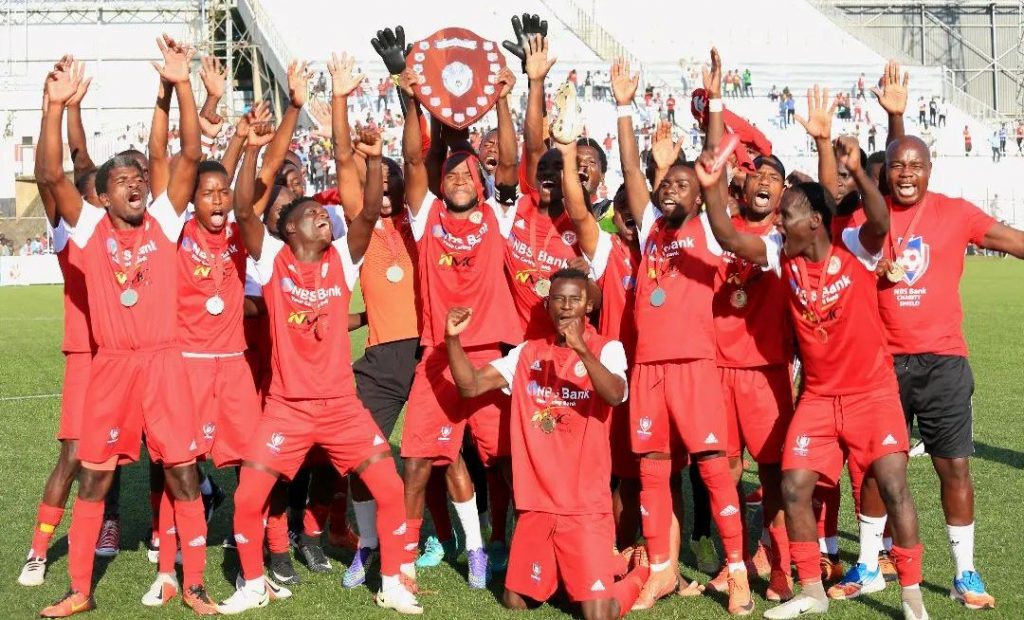How Big Bullets overtook Nomads
Long time ago there was a club that pioneered Malawi football. It was called Yamaha Wanderers named after its sponsors, Yamaha Motor Company, a Japanese manufacturer of motorcycles.
Founded in 1962 by Portuguese immigrants, Wanderers is the oldest active club in Malawi.

Within a short period, the Nomads would become the first successful club, dominating the domestic league and cups.
To date, Wanderers have six Super League titles and several trophies, including three FAM Cup tittles, three Castle Cup glories, eight Chibuku Cup, four Kamuzu Cup, one Press Cup, three 555 Challenge Cup, two Fisd Challenge Cup, three Carlsberg Cup, one BP Top 8 and two Presidential Cups.
Wanderers success would later result in the birth of Big Bullets, founded 1967 by players who broke away from the mother club, leading to the age-old rivalry between the two sides.
When Bullets were formed by disgruntled players, nobody dreamed that one day, they would leapfrog Wanderers to become the most successful club in the country.
But it only took three years for Bullets to claim a treble in 1970, winning the Blantyre and Districts Football League (BDFL), the Chibuku Cup and Castle Cup.
To date, 55 years after it was founded Bullets have won a record 15 Super League titles in 1986, 1991, 1992, 1999, 2000, 2001, 2002, 2003, 2004, 2005, 2014, 2015, 2018, 2019 and 2020/21.
They have also won the Castle Cup Malawi four times, Kamuzu Cup seven times, 555 Challenge Cup in 1990, Embassy Trophy twice, Chombe Tea twice, Carlsberg Cup twice, Presidential Cup twice and the FAM Charity Shield five times.
Though boasting of being the most successful club in Malawi, off field Bullets were not the best managed team.
For years, the People’s Team had no clear legal ownership, although loosely called a community team.
The club was run by elected executed committee which its notorious supporters could remove at will.
At one point, Bullets were touted as a team run by ruffians while the Nomads, on the other, hand were called Team ya Azungu, a model of a club run by the elite.
During the one party era, Malawi Congress Party strongmen John Tembo, Bakili Muluzi and Nyemba Mbekeani were at the helm of the club and ensured sound sponsorship for the Lali Lubani Road outfit.
This connection continued even after the multi-party dispensation under United Democratic Front gurus such as Brown Mpinganjira,Collins Chizumila and Humphrey Mvula.
No wonder the Nomads produced some of country’s top football administrators such as Walter Nyamilandu who has been Football Association of Malawi (FAM) president since 2005 and Peter Ishmael Khamisa who served as FAM general secretary from 1980 to 1991 and was FAM president from 1993 to 1995.
However, Wanderers’ golden years ended there.
In recent years, Bullets have not only been the most successful team on the pitch, but also off the pitch .
The People’s Team now have legal ownership under Nyasa Manufacturing Company.
The club pioneered commercialisation and is a shining example of professionalisation.
Bullets have a vibrant grassroots and youth development programme, boasting of a formidable reserve side.
It also has met the recently introduced requirements that all teams participating in CAF competitions must have women’s football team.
The Nomads on the other hand remain a shadow of themselves. Their youth development project is not as vibrant as they do not produce many players to beef up their squad as Bullets do.
Off the pitch, the Nomads have no clear legal ownership.
There is Wanderers Club trustees who claim ownership of the football club since it was formed as part of its sports activities.
Then there are supporters who also claim ownership of the club.
Recently the club was also registered as a limited company with business mogul and philanthropist Thom Mpinganjira as president of the board.
The Nomads now want Mpinganjira to take over the club. Mabvuto Missi, a former Wanderers executive committee member and a member of the task force which recommended total commercialisation of the club, bemoaned the status of affairs at his club.






One Comment